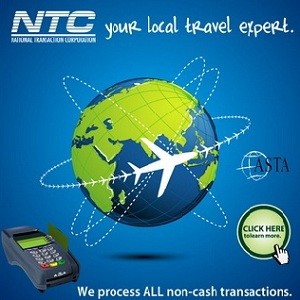August 29th, 2014 by Elma Jane

High risk credit card processing is electronic payment processing for businesses deemed as HIGH RISK by the MERCHANT SERVICES INDUSTRY
The high risk segment of payment processing has become more important as banks and ISO’s have begun to tighten up their credit restrictions and underwriting policies. Businesses are classified as high risk primarily because of their product or service and the way they go to market. In merchant services, risk is related to CHARGEBACKS or customer disputes.
The more likely a business to have chargebacks, the higher risk the business. For instance, online businesses selling a weight loss product through a free trial offer, is more likely to have chargebacks than a retail store selling the same weight loss product.
Merchants are often unaware their business falls into the high risk category when they first start shopping for a merchant account. Getting a high risk merchant account can be difficult.
These providers have more stringent requirements and the application process is longer compared to traditional merchant account providers.
High risk businesses should expect to pay higher rates and fees for payment processing services. As a general rule of thumb, merchants should count on paying at least more than a traditional merchant account. Most high risk merchant accounts also require a contract of at least 18 months, whereas low risk providers offer accounts without cancellation fees or contracts.
ROLLING RESERVES are also a big part of high risk credit card processing. Most high risk merchants have some sort of rolling reserve placed on the account, especially new accounts without any processing history. A Reserve refers to an account where a percentage of the funds from transactions are held in reserve to cover against any chargebacks or fees that the processor may not be able to collect from the merchant. This is similar to a security deposit, but merchants don’t have to pay it up front. Reserves are a pain point for many small high risk merchants, but they are definitely necessary and without them, processors would not accept any high risk merchants at all.
What Businesses Are High Risk?
As mentioned earlier, businesses are usually classified as high risk due to the product or service they offer, however merchants with severely damaged credit or a recent bankruptcy can also be considered high risk. Below are just of the few common high risk merchant categories:
Adult Websites
Cigars & Pipe Tobacco Online
Collection Agencies
Credit Repair
Debt Consolidation
E-Books & Software
Electronic Cigarettes
Firearms – Online
High Ticket & High Volume
Medical Marijuana Dispensaries
Multi Level Marketing & Business Opportunities
Nutraceuticals like weight loss supplements, cleansers etc.
Penny Auctions
Sports Betting Advice
Ticket Brokers – Online Tickets
TMF Merchants
Travel & Timeshare
Unfortunately this list is growing and some credit card processing companies even classify any start up Internet business, that doesn’t have extensive financials to be high risk. With the recent economic recession in the United States, there has been an increase in these start up Internet ventures. People are either looking to supplement their income or start their own business instead of looking for work.
How To Protect Your Business
Accepting credit cards is the single most important part of most online businesses. Unfortunately, many successful businesses go under after having their merchant account shut down. High risk merchants should always be cognizant of their merchant account and pay attention to chargeback percentages. Below are some tips for high risk merchants looking for payment processing solutions.
Be Upfront: Make sure your processor knows exactly what you sell and how you market the product/service. If they don’t accept your business type, keep shopping for a new merchant account provider. Many merchants will try to fly under the radar by not revealing all their products or fully disclose their marketing methods to the processor. This is a bad move, the processor will eventually find out the details about your business. This is usually from doing an audit on your transactions and contacting your customers.
Negotiate Every 3 Months: Credit card processing companies underwrite applications based on previous processing history. If there is no previous history, the account is riskier and the terms offered are usually more expensive and restrictive. You can always re-negotiate your rates, reserves and other contract terms with your current processor. Once they have 3 months of history to evaluate, they may be able to offer you a better deal. Three months of history is the magic number for most processors. If you applied without the previous history and were declined, there is a chance the same processor will approve your application if you provide 3 months of previous statements.
Prepare For The Worst: All high risk merchants should keep at least 2 active merchant accounts, from different providers. You never know when underwriting guidelines might change, or you may have an influx of chargebacks. Having a backup account or even multiple back up accounts is a good idea. Many high risk providers offer a load balancing gateway, which allows for multiple merchant accounts to be integrated into one payment gateway. This way you can spread transactions across multiple accounts, through one shopping cart/gateway.
Posted in Best Practices for Merchants Tagged with: account, account providers, accounts, banks, card, chargebacks, contract, credit, credit card processing, credit restrictions, customer, customers, deposit, electronic payment, fees, financials, gateway, High risk credit card, High Ticket & High Volume, ISOs, low risk, marketing, merchant, merchant account, merchant services, multiple accounts, payment gateway, payment processing, processing services, processing solutions, processor, product, Rates, reserves, retail store, risk, ROLLING RESERVES, Security, security deposit, service, shopping cart, statements, terms, TMF Merchants, transactions, travel, underwriting
June 4th, 2014 by Elma Jane
The operator of a gold vault on the Isle of man is to issue a credit card made of solid gold that enables customers to draw down cash on their holdings of the valuable metal. The 14-carat Visa gold card from IMGold will be made available to clients who have at least £100,000 of the metal bars in their vault. The idea is that customers can use the card to borrow against their reserves, effectively hedging against a decline in the value of gold.
IMGold is currently inviting applicants for the blinged up store of wealth under the banner: The card that carries more weight.
The Isle of man is some way behind Kazakhstan’s oligarchs, who have been brandishing gold and diamond-encrusted cards for some year now. MasterCard and Kazkommertsbank introduced their own diamond-encrusted card in the province back in 2008. This was followed in 2012 by the launch of Visa Infinite Exclusive cards – made of pure gold, with pearl embossing and 26 diamonds – by Sberbank for its top 100 customers in the energy-rich country.
Posted in EMV EuroPay MasterCard Visa, Visa MasterCard American Express Tagged with: card, credit-card, IMGold, MasterCard, reserves, visa, Visa gold card, Visa Infinite Exclusive cards

